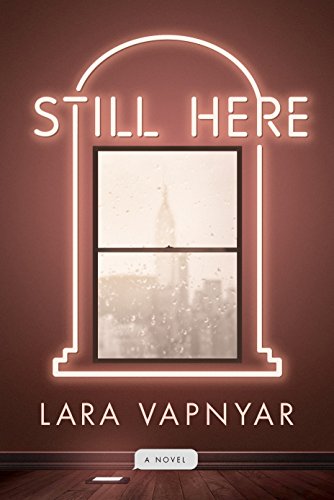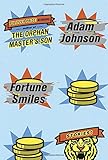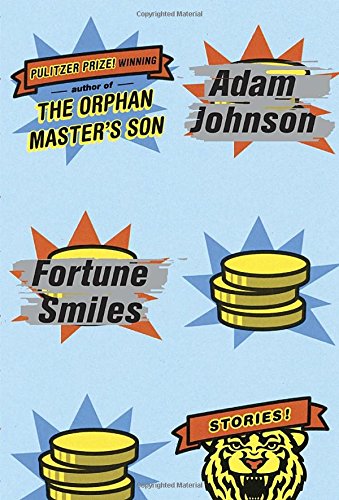
In Russian, the term ostranyeniye means “the act of making strange.” In the early twentieth century, the idea was coined and used by Russian Formalists, authors and artists, who sought to make the familiar seem foreign — to make those who consumed their art question everyday words and forms.
Still Here, the third novel by Moscow-born Lara Vapnyar, bears very little resemblance to any of the experimental works by those Russian Formalists. But though her book may have more in common with the works of Jane Austen or Claire Messud, her satire is its own form of ostraneniye, as it successfully points out that the essential strangeness of what are now some of the most common elements of American life.
Still Here is the story of four Russian immigrants in New York City. There’s Vadik, certain only of what he doesn’t want; Regina, a formerly famous translator who has married a wealthy American man; Vica, stuck in Staten Island with her son and husband but certain she’s “pure Manhattan”; and Sergey, Vica’s husband, a former prodigy who dreams of developing an app — “Virtual Grave” — that allows people to communicate with the dead by preserving and recycling what they said online in life. Virtual Grave is Sergey’s final chance to prove himself the brilliant man he was always expected to become. Given his difficulty holding down a job, it’s a last shot at providing for his family — and so a point of tension in his already troubled marriage with Vica. The characters’ respective stories unfold and intersect as they, as a group, try to come to terms with death in a way that enriches life.

 Vapnyar is not the first to use something like Virtual Grave in art. A short story in Adam Johnson’s excellent collection Fortune Smiles centered around a very similar concept, as did an episode of the hit television show Black Mirror. What makes Vapnyar’s book unique is neither the idea of the app nor the use of four friends trying to make it in New York City (Vica is obviously the Carrie Bradshaw of the bunch), but rather how these elements — a slightly forward-looking app and the perspective of four very different immigrants — are used together to “make strange” the modern world. There’s always someone having more fun on Facebook; always a better match out there on Tinder or OkCupid (in the book, the app is “Hello, Love!”); always someone wittier on Twitter. Except that, of course, there isn’t.
Vapnyar is not the first to use something like Virtual Grave in art. A short story in Adam Johnson’s excellent collection Fortune Smiles centered around a very similar concept, as did an episode of the hit television show Black Mirror. What makes Vapnyar’s book unique is neither the idea of the app nor the use of four friends trying to make it in New York City (Vica is obviously the Carrie Bradshaw of the bunch), but rather how these elements — a slightly forward-looking app and the perspective of four very different immigrants — are used together to “make strange” the modern world. There’s always someone having more fun on Facebook; always a better match out there on Tinder or OkCupid (in the book, the app is “Hello, Love!”); always someone wittier on Twitter. Except that, of course, there isn’t.
The book, like each of Vapnyar’s key players, is not without its faults. It’s a fresh take on an old theme, but it is nevertheless an old theme, and one that uses some old tropes—about New York City, about immigrants, about social media, etc. And there are points at which it feels more beach-read than smart satire. Of Regina, Vapnyar writes, “Being an introvert, she had trouble making friends.” It is the sort of sentence at which she herself might smirk elsewhere in the book.
Such shortcomings aside, Vapnyar ultimately offers a literary representation of the way we live now. She shows us America, the beautiful and absurd, managing to satirize it without ever losing sympathy for the people living in it, and certainly not for her four main characters. At one point, Regina, sure that today is the day she’ll start reading and writing again, puts off work to watch television; with the help of an app called “Eat’N’Watch,” which recommends the right food-show binge combination, she wastes hours and winds up disgusted with herself. In another moment, Vadik recalls the one-night-stand he had in New York City, who he left the next morning and who, he later realizes, he may have loved. The morning after, Vadik remembers that he had left his copy Hell Is Other People at the diner where he met the woman: “He had no idea where that diner was. He would never be able to find it again. He would never be able to go back there. Vadik felt a surge of panic and regret, so bad that it made his heart ache.”
The book gives us plenty on which to reflect. Would we want an app like Virtual Grave? What would it mean to control our own online presence after we’re dead? If we aren’t exactly living in the book’s universe of constant app updates and addiction, how far removed are we? It makes strange the world we think we know. But even within that — in the bounds and bonds of satire and reflection and ostraneniye — it manages to remind us of the humanity that existed before there was an app for that. One that will remain, we can hope, once we’ve moved on.


